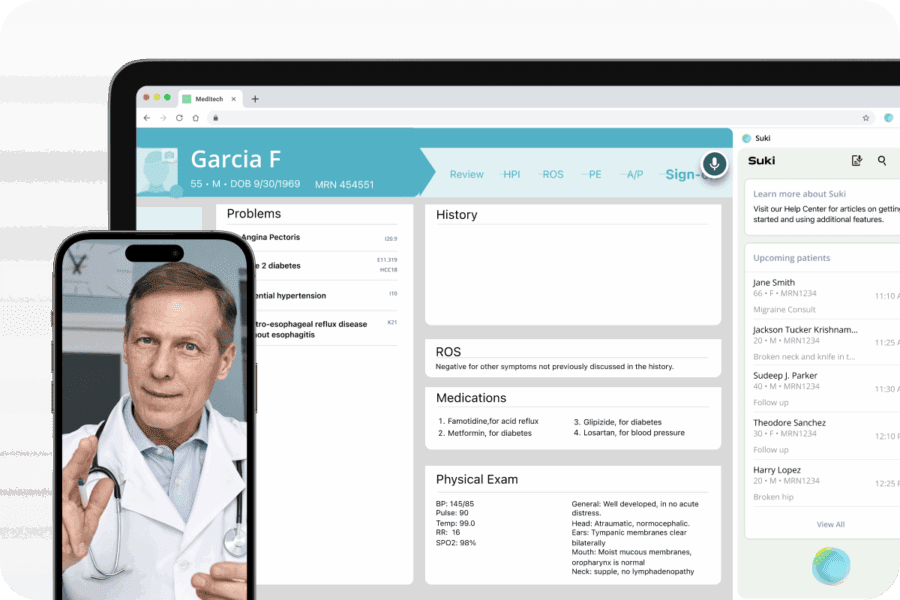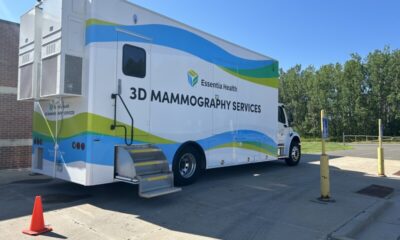Health
Suki Launches Nursing Consortium to Combat Healthcare Staffing Crisis

Suki, a leader in artificial intelligence (AI) for healthcare, has unveiled an initiative aimed at addressing the ongoing nursing shortage in the United States. The company announced the establishment of a nursing consortium, which includes prominent health systems, to tackle the administrative burdens faced by nurses. This initiative is set to enhance efficiency through the development of a solution known as Suki for Nurses, designed to integrate seamlessly with major electronic health record (EHR) systems such as Epic, MEDITECH, and Oracle Health.
The nursing consortium will enable collaboration among its members, allowing them to share insights and develop tailored AI tools that reflect the complexities of nursing workflows. This comes at a critical time when the healthcare industry is grappling with significant burnout and turnover; over half of healthcare workers are contemplating job changes, with one in four nurses citing exhaustion as a primary concern.
At the heart of Suki’s innovation is the Suki Assistant, a generative AI platform that listens to clinician-patient conversations and automatically produces clinical documentation. By integrating this capability into the ecosystem of AvaSure, a pioneer in AI-powered virtual care solutions, nurses and physicians will soon be able to complete admission, discharge, and visit documentation hands-free. This development is expected to streamline workflows and enhance patient engagement.
Punit Soni, CEO and Founder of Suki, emphasized the importance of feedback from consortium partners. “By collaborating with innovative health systems across the country, we’re gaining invaluable insight into nursing workflows from every angle of healthcare,” he stated. “Our mission has always been to bring joy back to medicine by removing administrative friction. Extending that to nurses means enabling them to spend less time documenting and more time caring for patients.”
The partnership with AvaSure will unfold in two phases. In the first phase, users—nurses and physicians—will utilize Suki’s ambient AI to automate documentation for admissions, discharges, and virtual visits. The second phase will introduce bedside documentation for nurses, further reducing the administrative load and improving real-time care delivery.
Currently, AvaSure supports over 1,100 hospitals nationwide, providing the partnership with an immediate scale that could significantly enhance healthcare delivery across the country. The nursing consortium includes members from diverse EHR environments, such as McLeod Health (Epic), Citizens Memorial and Boone Health (MEDITECH), and Fisher-Titus (Oracle Health), with additional members expected to join.
Suki’s AI platform is already in use across various healthcare functions, including telehealth, care management, and clinical documentation. By extending its AI capabilities to nursing, Suki aims to create a future where healthcare technology becomes less intrusive, allowing clinicians to focus on delivering exceptional patient care.
Through these advancements, Suki is committed to not only alleviating the administrative burden on nurses but also enhancing the overall quality of patient care in an increasingly challenging healthcare landscape.
-

 Technology4 months ago
Technology4 months agoDiscover the Top 10 Calorie Counting Apps of 2025
-

 Health2 months ago
Health2 months agoBella Hadid Shares Health Update After Treatment for Lyme Disease
-

 Health3 months ago
Health3 months agoErin Bates Shares Recovery Update Following Sepsis Complications
-

 Technology3 weeks ago
Technology3 weeks agoDiscover 2025’s Top GPUs for Exceptional 4K Gaming Performance
-

 Technology4 months ago
Technology4 months agoDiscover How to Reverse Image Search Using ChatGPT Effortlessly
-

 Technology2 months ago
Technology2 months agoElectric Moto Influencer Surronster Arrested in Tijuana
-

 Technology4 months ago
Technology4 months agoMeta Initiates $60B AI Data Center Expansion, Starting in Ohio
-

 Technology4 months ago
Technology4 months agoRecovering a Suspended TikTok Account: A Step-by-Step Guide
-

 Health4 months ago
Health4 months agoTested: Rab Firewall Mountain Jacket Survives Harsh Conditions
-

 Lifestyle4 months ago
Lifestyle4 months agoBelton Family Reunites After Daughter Survives Hill Country Floods
-

 Technology3 months ago
Technology3 months agoUncovering the Top Five Most Challenging Motorcycles to Ride
-

 Technology4 weeks ago
Technology4 weeks agoDiscover the Best Wireless Earbuds for Every Lifestyle



















